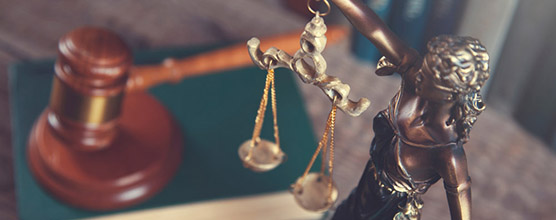
No law, whether divine or human, can make anyone good and even at their best laws can only block some people from doing the wrong. Increased police and soldier presence and policing can do no better whether via SOEs or ZOSOs!
The situation is bad in every country but worse here in that tougher fines or other legal penalties will not curb illegal behaviour, because lawbreakers have to be first caught, tried and convicted.
That’s just reminding of what everyone should know though. Let me now alert to what even seasoned lawyers may not know about laws.
There is an ethical ethos beneath every positive law and without attempting to split hairs philosophically, that ethos is either relativistic or absolutist. Laws are never intended to be nice suggestions that one may or may not heed, they are all legal obligations/oughts and carry varied penalties for breaches!
I would go further to say most, if not all. laws are absolutist in essence.
By relativism I mean simply the view that nothing is always right or wrong in essence, but every act, intention or motive depends on situation or circumstance for an evaluative decision.
By absolutism I mean the view that some things (acts, intentions or motives), not all things, are always wrong or right in essence regardless of situation or circumstance.
At the risk of being unfriended by my many lawyer friends, I maintain that there is nothing more absolutist in ethos than the legal oath/affirmation taken by witnesses in court. Ponder the oath “I swear by [some deity, not necessarily Almighty God, that binds your conscience to truth-telling] that the evidence I shall give to the court shall be the truth [no full stop] the whole truth [no full stop] and NOTHING BUT THE TRUTH.”
No relativistic elbow room is allowed! Notice, as well, that adherence to this absolutist declaration is further tested by cross-examination. Our courts cannot operate on a lesser standard if justice is to be the end result.
If you have not been in court circles much, as I have, you may not even know that you can swear by a deity other than “Almighty God” plain and simple.
I recall reading, years ago, the case R v Hines and King in which Hines, a Rasta, refused to swear in the traditional way and told the trial judge he preferred to swear “by Almighty God, King Rastafari”. The judge denied his request and given the details of the case he was found guilty and sentenced. He appealed and one of the grounds was that he was denied his legal right to swear by a deity whom he regarded as binding his conscience to speak the truth.
I don’t recall all the nuances of the appeal but on the swearing issue the appeal court agreed that he was denied a right which he had in law (the Oaths Act). The appeal was upheld, his conviction quashed and the sentence set aside.
In a radio dialogue which I hosted a few years ago I raised questions on the necessity and value of oaths in a relativistic world and given the reality of cross- examination and my esteemed clergy colleague and dear friend, Rhodes scholar trained-in-law, the late Rev. Earl Thames and a Deputy Director of Public Prosecutions, whose name escapes me now, helped to clarify my thinking on the matter but all lawyers need to grapple with the ethical underpinnings of law.
Though it is very difficult to sustain a lying testimony under cross-examination it is still possible so to do and when lies succeed in court, relativism wins and justice weeps.
So then the clamouring for stricter laws, tougher sanctions and greater security presence on our streets is understandable but not very defensible practically, given the essential defect of all laws raised in my opening and especially how laws play out in the real world of modern Jamaica.
